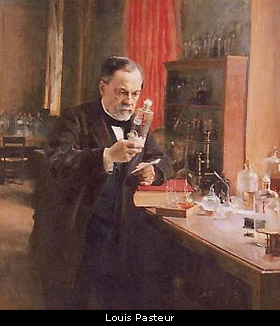My Audience, Profiled.
Those who go into medicine are
typically concerned with the welfare of others. They are intelligent and know
how to learn effectively. A med student is studious and time efficient, meaning
they don’t want to waste time on things that are not important. For most med
schools typical core classes that are required include, General Chemistry,
Organic Chemistry, and micro and molecular biology. A med students class load
is generally science heavy, yet there isn’t a specific major that gives you a
better chance at getting accepted. Med schools like to see students who are
different, who can be themselves and don’t feel that they must conform to a set
system.
 |
| A good doctor is one who not only knows medicine, but one who knows how to communicate well with others. |
Any med school that you go to will require a rigorous
application process, full of interviews, essays, and lots of presentation. With
all of this in mind it is a wonder why more premed students are not required in
their curriculum to take more persuasive writing or rhetoric classes.
There are also volunteer and practical experience hours that
any med school takes into consideration for their application process. Med school
is highly competitive so its important for a student to not only have good
grades but also to have experience with the medical environment as well as show
that you care about and are involved in the community.
Context:
I don’t think that many people of think of rhetoric when
they think of medicine. I will use some parts
from my post from on Rhetoric in my field. No one goes into medicine wanting to be a bad
doctor. In todays market there are so many doctors around that if someone doesn’t
like your bedside manner, or doesn’t agree with your diagnosis or prescription,
it is easy for them to find another doctor. As a doctor you are in business to
help people, but also to help yourself. You can’t help others if you’re out of
a job.
Rhetoric:
 Not everyone in medicine will share the same opinions and
there will be lots of information that will be presented to you by patients and
other doctors or drug companies that will be controversial. I hope to help them
understand that there are many kinds of doctors, but the best doctor a patient
would hope to find is a “Good doctor speaking well”. I will use some of my
examples and ideas from by blogpost, persuasion in medicine.
Not everyone in medicine will share the same opinions and
there will be lots of information that will be presented to you by patients and
other doctors or drug companies that will be controversial. I hope to help them
understand that there are many kinds of doctors, but the best doctor a patient
would hope to find is a “Good doctor speaking well”. I will use some of my
examples and ideas from by blogpost, persuasion in medicine.
I wish to focus on the importance of patient persuasion. A
treatment is only effective if the patient follows it. As a doctor you face
many different kinds of people all feeling a variety of emotions. From angry to
afraid, from confused to determined. A doctor will need to know his audience
and know how to persuade.
I want to show them that from the med school application
process, to prescribing treatments, to patient persuasion is all about speaking
well, and why it is important for them to do so.
 |
| Through the ages men and woman have toiled endlessly to make advancements in medicine in order to help others |
History-
The history of
medicine is all about gaining greater knowledge about our bodies and
discovering how we can use this knowledge to help people. Gone are the days
when a doctor can order someone to do something and they obey without question.
I wish to draw their attention to the idea of rhetoric fitting hand in hand
with the goal of medicine, adapting to find better ways of helping people. This
will be shown by taking excerpts from my historical blog. I will do some
further research on some advancement made in medicine to show that the whole
goal is to adapt what we are doing to more effective ways of dealing with and
helping patients
I like what you said about med school students needing to take more classes about persuasive writing/speaking. Thomas wrote about the need to persuade patients, and you point out the need to persuade to even get into the field. Those are both things that are very important to consider when deciding if this is the career for you.
ReplyDelete